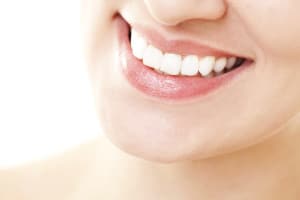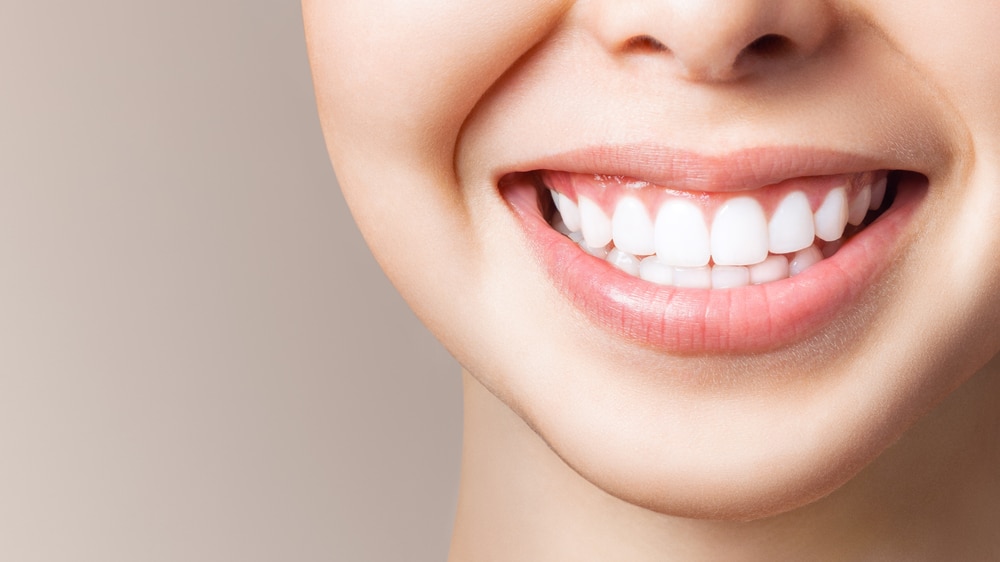Teeth Bleaching
A bright smile can make a significant difference in how you look and feel, and at Gentle Dental Care, LLC, we offer several treatments to help you achieve it. Whether you're interested in professional teeth bleaching, in-office teeth whitening treatments, or the convenience of Venus White for at-home care, our team is here to provide the right solution that fits your needs. Let us help you transform your smile and boost your self-confidence with our advanced teeth whitening options.
Do You Know The Difference Between Teeth Whitening And Bleaching?
Patients from Edison, Metuchen, & South Plainfield, NJ, often mistake teeth bleaching and teeth whitening to be the same. Clinically, products and procedures are categorized under bleaching if they can make the teeth whiter than their natural color. Bleaching will usually involve using products with active ingredients such as hydrogen peroxide and carbamide peroxide. Whitening is different because it refers to procedures or products that restore the natural color of teeth. This is done by removing stains or any debris that might be on the teeth surface. As a person gets older, it is natural for teeth to get stained or get darker. Whiter teeth can help you to look and feel younger. Call (732) 549-5660 today to schedule your teeth bleaching consultation at Gentle Dental Care, LLC!
What Are Your Teeth Bleaching Options?
A patient has an option to, first, have an in-office teeth bleaching procedure or, second, purchase over-the-counter teeth bleaching products. In-office teeth bleaching procedures mean having it done at your dentist’s office. This is always preferred over self-medication because the whole procedure will be supervised and is sure to work because your dentist will use stronger bleaching agents as compared to those contained in OTC products. In-office treatments have immediate effects and you can bleach the teeth up to 10 times lighter than its normal shade. Over the counter products of home bleaching systems are very popular because they are less expensive and are very accessible. However, OTC bleaching products are not customized to your tooth color and condition so you cannot guarantee the result that you want to achieve. It is always best to consult your dentist first to know which option is best suited for you.

What Are The Benefits Of Having In-Office Treatment Versus Over-The-Counter At-Home Products?

At Gentle Dental, our in-office teeth bleaching can whiten your teeth beyond their natural shade, up to eight shades whiter than when you came in. That’s gleaming! We can do this because our in-office whitening gel is professional strength. That’s why our hygienists apply the gel to your teeth one tooth at a time, and that’s why we but a protective barrier on your gums prior to your treatment.
Because there isn’t any supervision for at-home strips and other whitening kits, the whitening agents used must inherently be far less strong. That way people won’t get the whitening gel on their gums and cause real damage. That means the whitening agents cannot achieve the same degree of whitening that we can in the office. Second, applying the strips to your teeth isn’t easy to do. It can be very difficult to get an even application, as the strips adhere better in some places than others. They can slip. Plus, you can get the gel on your gums.
Finally, you need to consider how much time you want to invest. Our in-office professional whitening takes about one hour. At-home strips or kits usually require at least a couple of weeks, placing the strips on your teeth for an hour or so every night. Even after that time investment, your teeth won’t be as white in the end as they would be with our in-office treatment.
What Are The Risks That You Should Know About Tooth Bleaching?
All dental practitioners in Edison, NJ know that every dental procedure has attached risks and they each make sure that every patient that comes in for a consultation is aware of not only the benefits of the bleaching procedure but more importantly the risks and disadvantages of getting teeth bleaching. If it’s not done properly a patient may suffer chemical burns from the bleaching gels because of their high concentration. A patient may also suffer from over bleaching if this procedure is not done by a properly trained dental professional. There is also a risk of experiencing too much pain and sensitivity to hot or cold temperatures.
Teeth Whitening
How Does Teeth Whitening Brighten My Teeth?
Our tooth enamel seems ultimately hard, but it’s actually slightly porous. That’s how stains accumulate. When we have that glass of wine or bowl of raspberries, our saliva washes away most of the pigment present, but tiny amounts penetrate the enamel and lodge. You don’t notice any staining immediately, but over time it makes your teeth more and more yellow and dingy.
Hydrogen peroxide is the common whitening agent in most whitening gels. When the whitening gel is applied to the teeth, it works in a similar manner to how laundry detergent removes stains from a shirt. Like the staining agent, the hydrogen peroxide penetrates the enamel and breaks up the pigment in the stains. They are then rinsed away when the gel is removed.
Would Teeth Whitening Benefit Me?
Teeth whitening only works on stains in the enamel layer of your teeth. You may have heard claims touting whitening of interior staining, but these claims are dubious at best. If your teeth are dingy from food and drink, or maybe from smoking, our Gentle Dental whitening treatments will remove the stains and whiten your teeth dramatically.
However, if your staining is in the dentin layer of the teeth, caused by either a drug reaction when you were a child or from trauma to a tooth, teeth whitening will not remove this grey staining. It is too deep in the tooth for the whitening gel to penetrate. Really the only way to whiten this type of staining is for Dr. Strober or Dr. Butcofski to apply porcelain veneers to the front side of all your stained teeth. Veneers will give you a bright white smile, plus they can correct cosmetic flaws such as chips or misshapen teeth. If you have just a single tooth that has turned grey from trauma, a porcelain crown can be placed over the tooth to change its color. Crowns can also mask cosmetic issues.
How Long Does Teeth Whitening Last?
If you continue to eat those raspberries and drink your coffee and red wine, your teeth will stain again. You can mitigate some of the staining by drinking some of these liquids through a straw to bypass the teeth, but who really wants to do that? You can also drink a little water after you have coffee or red wine to wash away some of the pigment that wants to adhere to your enamel. Depending on these things, your teeth whitening/bleaching at Gentle Dental should look great for up to three years.
Will Teeth Whitening Cause My Teeth To Become Sensitive?
Teeth whitening has been a successful, popular dental treatment to brighten smiles the world over. Whitening has been done for over 20 years and has proven to be very safe. Because the whitening agents penetrate the enamel on your teeth to break loose the stains, this can make your teeth a little sensitive to hot and cold foods and drinks for a day or two and then your teeth return to normal. But if you have particularly sensitive teeth, you should tell us before we begin your whitening, as we can desensitize your teeth with potassium nitrate or calcium phosphate.

Is Teeth Whitening Safe?
Teeth whitening is one of the more popular, easy ways to improve your appearance. Teeth whitening with hydrogen peroxide or carbamide peroxide gels has been done for decades all around the world and has proven to be safe. There are no recorded instances of irreversible or structural damage caused by any approved teeth whitening methods.
The gels we use at Gentle Dental are approved for use by the American Dental Association.
What Can I Expect During My Teeth Whitening Session?
For our in-office teeth whitening at Gentle Dental, we start with a shade guide to establishing a “before” benchmark. Next, we cover your gums. We then paint our hydrogen peroxide gel onto each tooth by hand. This ensures even, complete coverage. Next, we activate the whitening gel by applying a special light across the teeth. This does so without irritating the nerves and causing tooth sensitivity. The gel is then removed. For more involved staining, we may repeat the procedure a second time. Our in-office teeth whitening takes about one hour.
How Many Appointments Will I Need To Have Teeth Whitening?
Our in-office teeth whitening is a single appointment. In fact, it only takes about one hour to whiten your teeth up to 10 shades! Talk about great use of your time.
You can contrast our efficient in-office whitening to an at-home kit. These usually require wearing the strips or one-size-fits-all trays every day for two weeks.
Why Do My Teeth Become Stained And Yellow?
The enamel on our teeth is unique to each person, like our fingerprints and skin color. Enamel is also slightly porous, some more than others. Because enamel is porous it can accumulate the pigments from foods and drinks we consume. When we eat something like a bowl of blueberries, at first there can be a fair amount of pigment left on the teeth. Our saliva washes away most of it, but some can remain. Over time this accumulates and makes your teeth less white.
There is another type of staining that affects our teeth, but it happens in the dentin layer, the layer beneath the enamel. These stains are the result of drug reactions to tetracycline or they can be caused by trauma to a tooth. Even overuse of fluoride can stain teeth. The result is a grey color to these teeth. Unfortunately, stains in the dentin don’t respond very well to teeth whitening. They usually need to be covered with porcelain veneers.
Here are the main reasons our teeth become stained:
- Food— Blueberries, raspberries, blackberries, even dark chocolate have natural pigments in them that can stain the enamel of your teeth.
- Drink — Coffee, tea, red wine, cranberry and other dark juices, even cola soft drinks all can stain your teeth.
- Smoking — Nicotine leaves yellow stains on your teeth.
- Fluorosis — If a child has too much fluoride, it can cause this condition, which stains the teeth. This staining is in the dentin.
- Drugs — In the 60s and 70s tetracycline was a heavily used antibiotic, especially in children. Unfortunately, in many kids it permanently discolored their teeth.
- Genes — The enamel on some people’s teeth is darker than others. Also some people have enamel that is more porous and stains easier.
- Aging — As our enamel thins with age and wear, the dentin layer shows through more and more and this makes our teeth increasingly yellow.
Can I Get A Teeth Whitening Treatment If I Have Fillings, Veneers, Or Crowns?

Composite resin fillings, porcelain veneers, and porcelain crowns are not affected by teeth whitening treatments. That means the whitening gel doesn’t harm them in any way, but it also doesn’t whiten them. For dental porcelain, that’s not a big deal because it is highly resistant to staining in the first place. Composite resin is also resistant to staining, but not as much as porcelain.
There is some research that points to increased leaching of mercury from silver amalgam fillings caused by peroxide gels used in teeth whitening, but the concentrations of these levels are still far below anything associated with any health concerns.
See What Our Patients Are Saying
“This is the absolute BEST dental practice around. I cant really say much more except for that everyone should go to Gentle Dental.”-Jerry V.
Is Teeth Whitening Painful?
Our in-office teeth whitening treatments at Gentle Dental are painless. We apply the hydrogen peroxide gel to each tooth one by one after first placing a barrier to protect your gum tissue. You don’t feel anything.
After your whitening, your teeth can be a little sensitive to hot and cold for about 24 hours, but this passes. As mentioned above, if you have particularly sensitive teeth, we can desensitize them by applying potassium nitrate or calcium phosphate before we apply the whitening gel.
What is Venus White At-Home Treatment?
Venus White is a professional-grade teeth whitening system specially formulated to give you a brighter, whiter smile from the comfort of your home. This at-home treatment is easy to use and has various strengths for different needs, including options for sensitive teeth. Venus White's advanced formula effectively removes stains caused by coffee, wine, smoking, and other common culprits, delivering noticeable results in as little as a few days. With proper use, it offers a safe and convenient way to achieve long-lasting whitening results, making it a popular choice for maintaining a bright smile between professional treatments.
Frequently Asked Questions (FAQs)
Can I use Venus White if I have sensitive teeth?
Yes, Venus White is formulated to be gentle and can be used by individuals with sensitive teeth. However, it's always a good idea to consult your dentist if you have concerns about sensitivity before starting any whitening treatment.
How long will my teeth be white after using Venus White?
The longevity of the results depends on your oral hygiene and lifestyle habits, such as the consumption of staining foods and drinks. On average, results can last several months to a year with proper care.
How much lighter can my teeth get with bleaching?
Teeth bleaching can lighten your teeth by several shades, typically two to eight shades, depending on the original color of your teeth. The final result may vary based on your dental health and lifestyle habits.
How long do professional teeth whitening results last?
Results can remain for six months to two years, depending on your diet, oral hygiene, and habits like smoking. Touch-ups and good oral care can help prolong the effects.
How often should I whiten my teeth to maintain the results?
You should whiten your teeth every 6-12 months, depending on your habits and your whitening system. Over-whitening can cause sensitivity, so consult your dentist for guidance on maintaining results safely.
Can teeth whitening or bleaching cause tooth sensitivity?
Yes, tooth sensitivity is common after teeth whitening and bleaching, especially if you have existing sensitivity. However, it is usually temporary and can be managed with desensitizing toothpaste or products recommended by your dentist.
How can I maintain the results of my bleaching or whitening?
Practicing good oral hygiene, avoiding staining foods and drinks, and using touch-up treatments like at-home whitening kits can help keep your smile bright and white. Regular dental cleanings can also help extend your results.
Call Gentle Dental For Teeth Whitening In Edison, NJ
For more information on whitening your teeth with teeth bleaching in Edison, Piscataway Township, New Brunswick, Metuchen, and Woodbridge Township, NJ give us a call at 732.549.5660. Or, you can fill out the form in our contact page for your appointment with one our talented dentists.



